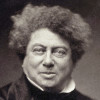“ A denial rids a man at once of the foolish and ridiculous pleasure; but it will not always rid him of the pain. When he refuses the merit which is ascribed to him, nobody doubts his veracity. ”
Adam Smith, The Theory of Moral Sentiments (1759). copy citation
| Author | Adam Smith |
|---|---|
| Source | The Theory of Moral Sentiments |
| Topic | pain denial |
| Date | 1759 |
| Language | English |
| Reference | |
| Note | |
| Weblink | https://en.wikisource.org/wiki/The_Theory_of_Moral_Sentiments |
Context
“But though no man of middling good sense can derive much pleasure from the imputation of a laudable action which he never performed, yet a wise man may suffer great pain from the serious imputation of a crime which he never committed. Nature, in this case, has rendered the pain, not only more pungent than the opposite and correspondent pleasure, but she has rendered it so in a much greater than the ordinary degree. A denial rids a man at once of the foolish and ridiculous pleasure; but it will not always rid him of the pain. When he refuses the merit which is ascribed to him, nobody doubts his veracity. It may be doubted when he denies the crime which he is accused of. He is at once enraged at the falsehood of the imputation, and mortified to find that any credit should be given to it. He feels that his character is not sufficient to protect him.”
source



